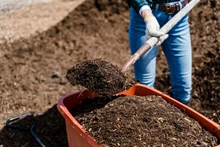
Extreme heat has killed over 24,000 people in northern India since 1992, increasing air pollution and hastening glacial melt, according to a team of researchers led by Ramit Debnath of the University of Cambridge.
According to the researchers, India is now "facing a collision of multiple, cumulative climate hazards," with extreme weather occurring practically every day from January to October of last year.
Debnath told Reuters that it was "very important to figure out how we measure vulnerabilities to frequent extreme events," pointing out that the Indian government's own "climate vulnerability index" is thought to underestimate the impact of longer, earlier, and more frequent heatwaves on development.
He cautioned that up to 90% of India's total land area is now in extreme heat danger zones, and the country is not properly equipped. "India has already done a lot in terms of heat mitigation; they now recognise heatwaves as part of their disaster relief package," he said. "However, the pace of these plans must be optimized."
"The adaption steps that have been placed on paper are fairly significant... and I believe they have a sound plan, but it is how they are implemented."
Heatwaves, according to the researchers, are also undermining India's efforts to accomplish its "Social Development Goals," a set of 17 United Nations targets to reduce poverty, hunger, inequality, and disease.
Extreme heat might eventually result in a 15% decrease in "outdoor working capacity," degrade the quality of life for up to 480 million people, and cost 2.8% of GDP by 2050, according to the researchers.
According to the Climate Transparency Report published last year by environmental organisations, falling productivity due to abnormally high temperatures might already cost India 5.4% of its GDP.











